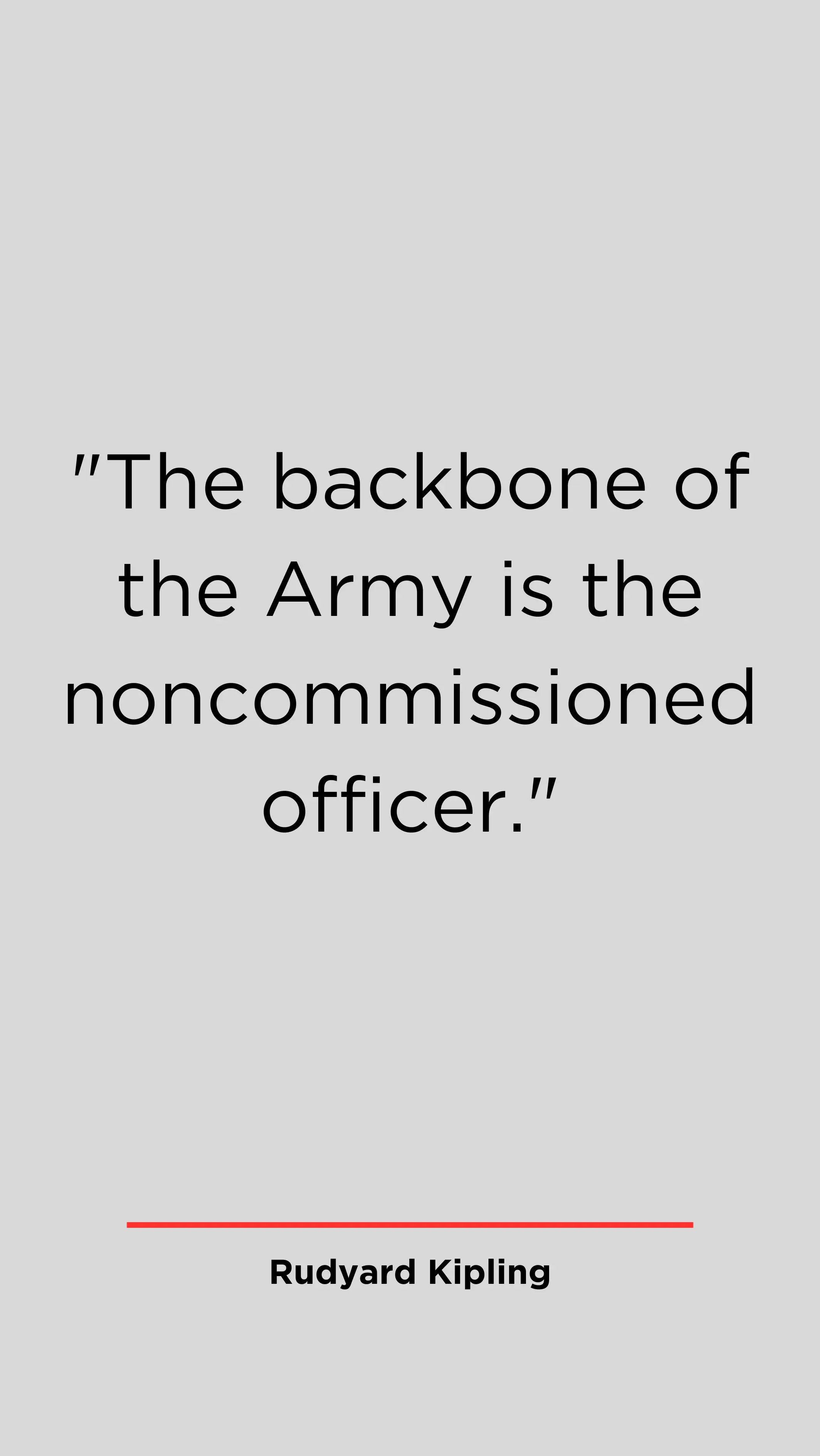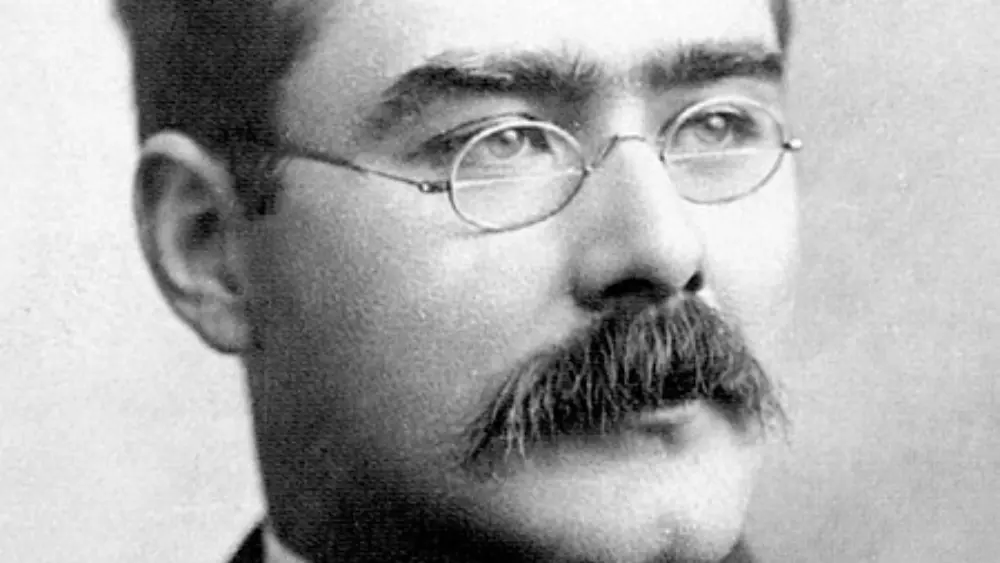Rudyard Kipling, the celebrated British author and poet, reflects on courage, conflict, and the human experience within the British Empire. Born in Bombay, British India, on December 30, 1865, Kipling portrayed human nature’s complexities and resilience in adversity.
Early Life and Literary Beginnings
India shaped Kipling’s early life, where he was born and spent his formative years amidst a vibrant cultural tapestry. In colonial India, Kipling absorbed its essence, fostering an appreciation for human complexities, resonating in his later literary works. India’s diverse languages and cultures deeply influenced his writing, weaving together adventure, resilience, and the complexities of human nature. Kipling’s early experiences inspired his storytelling, setting the stage for his captivating literary journey that mesmerized global audiences.
In his early work, Kipling explored bravery, conflict, and the human spirit, revealing his profound grasp of universal human truths. From his Indian childhood, Kipling infused his works with an appreciation for courage’s complexities and the accompanying moral dilemmas. Kipling’s early work laid the foundation for his prolific career, marked by a deep understanding of human nature and spirit.
Rudyard Kipling: Exploration of Imperial Themes
Kipling’s work portrayed the British Empire’s impact, offering a nuanced view of its global influence and imperial themes. Kipling addressed colonial complexities, shedding light on power dynamics and moral dilemmas, exploring both colonizers’ and colonized individuals’ perspectives. His portrayal of imperial intricacies underscored global challenges, inviting critical examination of imperialism’s enduring legacy and political authority.
Kipling’s exploration of imperial themes in his works showcased his grasp of power dynamics and colonial expansion’s intricacies. Kipling delved into imperialism, prompting thought on moral ambiguities and power dynamics, showcasing history’s intertwining with the human condition.
War and Human Resilience
Kipling’s poignant portrayal of war epitomized his profound understanding of human resilience and adversity within his literary works. Through “The Jungle Book” and “The Man Who Would Be King,” Kipling depicted individuals’ indomitable spirits confronting conflict and war. Exploring characters’ emotional landscapes in war, Kipling illuminated unwavering courage and resilience amidst chaos, offering profound insights into human strength.
In the tapestry of war, Kipling’s narratives celebrated the human spirit while delving into its complexities and moral dilemmas.
Kipling’s portrayal of courage and conflict captured the visceral emotions and psychological nuances defining the human experience in wartime. Through empathetic character depictions, Kipling urged contemplation of enduring themes like sacrifice, survival, and the human spirit’s resilience.
Rudyard Kipling: Reflections on Patriotism and National Identity
Kipling’s reflections on patriotism and identity offered a nuanced examination of allegiance within the context of British colonialism. Kipling explored loyalty and duty, offering insights into personal sacrifices and moral dilemmas individuals face in national service. His exploration of patriotism’s challenges served as poignant commentary on tensions arising from personal convictions and societal expectations.
Kipling’s patriotism reflections revealed his understanding of the emotional complexities individuals face in loyalty to their nation. His empathetic portrayal of characters wrestling with national allegiance shed light on moral considerations and ethical quandaries in devotion. Kipling’s exploration of personal convictions and societal expectations prompted contemplation of patriotism’s intricacies, fostering a deeper appreciation for emotional bonds.
Human Struggles and Moral Dilemmas
Kipling’s portrayal of human struggles and moral dilemmas testified to his profound insight into ethical considerations and emotional complexities. In “Gunga Din” and “The White Man’s Burden,” Kipling examined power dynamics, privilege, and ethical responsibilities within society. His nuanced exploration of characters’ moral quandaries encouraged introspection, prompting contemplation of intricate ethical dimensions underlying human behavior.
Kipling’s portrayal of human struggles highlighted universal challenges in confronting power and privilege, fostering a deeper understanding. Through his masterful storytelling, Kipling invited readers to grapple with the ethical implications of personal choices and societal obligations, fostering a deeper understanding of the moral dilemmas that shape human behavior and drive the intricate dynamics of social interaction. His poignant exploration of the human condition within the context of moral ambiguity and ethical responsibility resonated with audiences, inviting them to reflect on the profound complexities of human existence and the moral imperatives that guide individual actions within the broader societal context.
Rudyard Kipling: Impact on Literary and Cultural Discourse
Rudyard Kipling’s profound impact on literary and cultural discourse extends far beyond the boundaries of his native Britain, encompassing a global audience captivated by the depth and richness of his storytelling. His profound insights into the complexities of human experiences, particularly in the context of courage and conflict, have solidified his position as a literary luminary whose works continue to resonate with readers across generations and cultural backgrounds. Kipling’s adept exploration of universal themes and the human condition has contributed to the enduring legacy of his literary contributions, fostering a rich cultural dialogue that transcends geographical boundaries and temporal constraints.
Kipling’s profound influence on literary and cultural discourse has left an enduring mark on global literature, inspiring critical reflections on human resilience and the moral complexities that shape the human experience. His evocative portrayals of courage and conflict have inspired countless artists, writers, and thinkers to engage with the intricacies of the human experience, fostering a dynamic cultural discourse that continues to shape the contemporary exploration of themes such as identity, bravery, and the challenges of navigating the complexities of societal expectations. Kipling’s enduring impact on literary and cultural conversations serves as a testament to the timeless relevance of his artistic vision and the enduring power of his narrative insights to provoke thought and introspection within a diverse and ever-evolving cultural landscape.
Legacy of Artistic Exploration and Social Commentary
Rudyard Kipling’s enduring legacy as a literary figure and social commentator remains a testament to his profound impact on the artistic exploration of human struggles and societal dynamics. Through his masterful storytelling and insightful social commentary, Kipling not only illuminated the complexities of courage and conflict but also provoked critical reflections on the intricacies of the human condition. His thoughtful engagement with themes of identity, morality, and the challenges of navigating societal expectations continues to inspire readers and scholars to delve into the profound depths of the human experience, fostering a rich cultural dialogue that transcends temporal and geographical boundaries.
Kipling’s lasting legacy as an artistic explorer and social commentator serves as a source of inspiration for individuals and communities seeking to grapple with the enduring questions that define human existence. His adept fusion of literary craftsmanship and profound social insights has paved the way for continued exploration of the complex interplay between personal agency and societal structures, inviting readers to engage in meaningful reflections on the enduring significance of courage, conflict, and the multifaceted aspects of the human spirit. Kipling’s enduring legacy continues to shape the contemporary literary landscape, serving as a poignant reminder of the enduring power of art to provoke introspection and foster a deeper understanding of the intricacies that define the human experience.

Rudyard Kipling: Continued Relevance in Contemporary Society
Rudyard Kipling’s enduring relevance in contemporary society testifies to the timeless inspiration of his literary contributions. His profound insights into resilience, courage, and the human spirit captivate audiences, prompting ongoing reflections on his enduring relevance. In an unruly era, Kipling’s exploration of universal themes fosters introspection, urging engagement with human nature’s complexities and resilience.
Kipling’s lasting significance transcends time, fostering a dynamic cultural dialogue pertinent to a contemporary exploration of human consciousness. His poignant storytelling and thought-provoking commentary provide a lens to examine the complexities of the human condition, urging introspection. Kipling’s legacy inspires introspection, urging readers to explore human resilience and the pursuit of courage and integrity amidst adversity.










